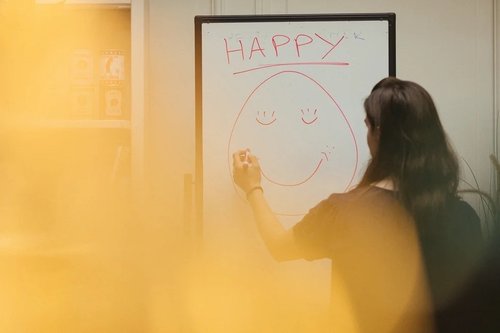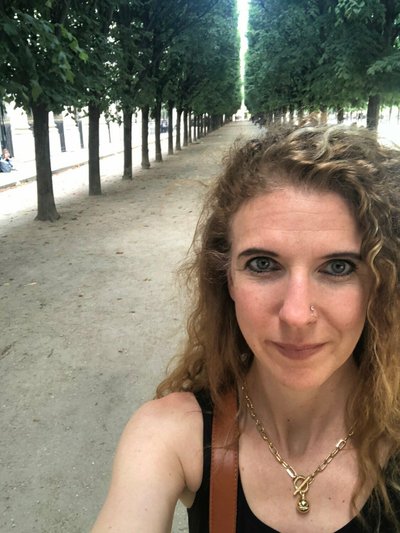Sleeping less to succeed more: Do CEOs sleep as little as we think?
Aug 26, 2024
4 mins

From Jack Dorsey to Tim Cook, top executives are praised for their incredible accomplishments on little sleep. However, where does the idea of “sleeping less to succeed more” come from, especially when health experts advise us to get eight hours of shut-eye a night?
We tend to think entrepreneurs have the gift of needing less than six hours a night, but is this a natural trait that breeds success, or do the pressures from their profession compel them to miss out on some much-needed Zs? Is there a connection between sleep deprivation and professional success?
Untangling the truth about sleep
According to María Angélica Barrero Guinand, a cognitive-behavioral psychologist at I Feel, myths about sleep need to be debunked. “Studies agree on an average [necessary] amount of sleep. While it varies with age, we need between seven and nine hours of sleep a night for good mental health and a good immune system.”
It’s been said that leaders, especially those with a higher socioeconomic status, are chronically more sleep-deprived than the general population. However, these leaders can only go against their biology for so long. “Managing” your sleep like a sales strategy is impossible or even harmful, according to neuroscientist Chelsie Rohrscheib. She states that “contrary to popular belief, it’s extremely rare for a person to require less than six hours of sleep per night, and those who make this claim about themselves are almost always chronically sleep deprived.”
Sleeping less is exalted within entrepreneurial culture, but it contradicts common sense according to Anaïs Roux, Head of Care at Teale. “These beliefs defend certain habits to legitimize actions that are cyclical.” For example, take a look at Hal Elrod’s famous book Miracle Morning with over three million copies sold. He presents a structured methodology based on the acronym SAVERS: silence, affirmations, visualization, exercise, reading, and scribing (writing). The idea is to wake up earlier, as early as 4 a.m. (for those especially motivated) to practice these six activities to improve well-being and productivity. Apple CEO Tim Cook follows this routine. For him, it’s lights out at 9:00 p.m. and up at 4:00 the next day. Although, he still prioritizes getting a full 7-8 hours of sleep per night.
The perils of altering your schedule
By sleeping less to work more, executives believe they’re saving time. However, these short-term behaviors are often detrimental and can lead to failure. “We forget this, but everyone needs a rhythm to balance their psychological and physical functioning. If there’s not a balance, mishaps occur,” says Guinand. Roux agrees, adding that “a small number of us can function with less than six hours of sleep, but we need to monitor our performance over time. If we notice mood swings, an increased need for caffeine, or reduced cognitive abilities, these are all signs that should alert us to a sleep-related problem.”
Consequences of sleeping too little
Not getting enough sleep affects our mood and health, simple as that. Nights of less than six hours of sleep can even increase the risk of type 2 diabetes, according to the National Library of Medicine. Similarly, the risk of cardiovascular disease, infection, mood disorders, and depression have been linked to chronic sleep deprivation.
The list goes on as reduced sleep can weaken the immune system, accelerate aging, and contribute to psychological and cognitive issues, says Roux. “Drowsiness and accidents increase without enough sleep. Our emotions are also affected; we become more irritable and easily angered. It’s important to be aware that our memory is less effective too, which means decision-making can be inaccurate and creativity reduced,” adds Guinan.
How lack of sleep affects the workplace
Countless studies have detailed how a lack of sleep can damage your productivity, professional relationships and even career progression. Workers and employers who suffer from insomnia offen face a reduction in entrepreneurial diligence, erratic management highlighted by mood swings, and faulty decision-making.
These kinds of behaviors add stress to our jobs and create tense atmospheres and toxic work cultures, and eventually, this can lead a team to failure. “The key, as with many team issues, is to accept diverse approaches and the subject of sleep is part of this,” says Roux.
How to get enough rest
One study analyzed the sleep of 21 political leaders and business executives. Contrary to popular belief, they generally sleep as much as the average person. Only a few exceptional individuals can function normally on less than six hours of sleep. This was the case for British Prime Minister Winston Churchill, who slept only five hours a night.
The same goes for Margaret Thatcher, who allowed herself just four hours of sleep per night. As for Barack Obama, he also gets by with five hours of rest. Setting aside these exceptions, psychologists unanimously recommend implementing rituals to promote sleep duration. Here are some suggestions from Roux and Guinan to adjust based on your natural rhythm.
1. Environment and lifestyle
- Sleep in a dark room away from noise.
- Keep the temperature cool at night.
2. Regular bedtime
- Establish fixed times for going to bed and waking up, even on weekends.
- Avoid compensating for lack of sleep on weekends as this disrupts the circadian rhythm.
3. Bedtime ritual
- Reduce brightness in your room before bed.
- Avoid energizing activities like watching TV or listening to music in your room.
4. Don’t force yourself
- Limit your time spent awake in bed because your bed is for sleep, and your brain needs to register this.
- Put electronic devices away, especially phones, to reduce light exposure and external stimuli.
5. Pre-bedtime habits
- Avoid stimulating drinks like coffee, tea, and alcohol.
- Opt for reading a book to help you fall asleep.
- Create a relaxing atmosphere with soft lighting.
6. Physical activity
- Exercise during the day and avoid physical activity an hour before bedtime.
7. Natural rhythm
- Observe your natural sleep needs by taking a day (and night) to determine your sleep quota.
Photo: Welcome to the Jungle
Follow Welcome to the Jungle on Facebook, LinkedIn, and Instagram and subscribe to our newsletter to get our latest articles every week!

More inspiration: Our relationship with work

Advice for people pleasers: Breaking free from being “too nice” at work
Do you often say things like, "Yeah, sure, I can do that!" when in fact you don't have the bandwidth to do that? We've got you.
Dec 12, 2024

There’s no place like home: Does relocation hurt productivity?
Relocating often brings homesickness, but it’s part of the journey. Here’s how to embrace the change and make the most of it.
Oct 22, 2024

Should you take your office crush to the next level?
Is an office crush worth the risk, or more damaging to your career and reputation than you think?
Oct 09, 2024

Young workers on unpaid internships: Was it worth it?
While internships build skills and connections, unpaid ones can limit opportunities for those who can't work for free. Is it fair?
Sep 12, 2024

The do's and don'ts of working remotely on vacation
Can you truly combine work and vacation? With remote working becoming more popular, many are exploring their options.
Jul 18, 2024
The newsletter that does the job
Want to keep up with the latest articles? Twice a week you can receive stories, jobs, and tips in your inbox.

Looking for your next job?
Over 200,000 people have found a job with Welcome to the Jungle.
Explore jobs

